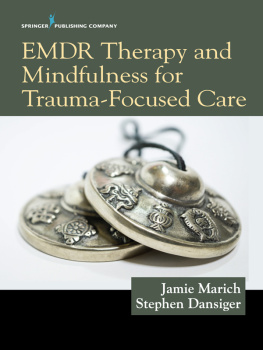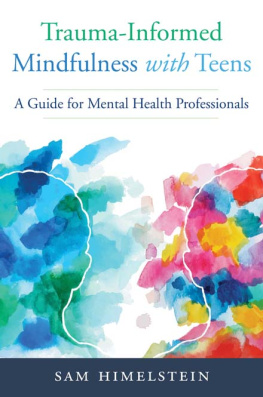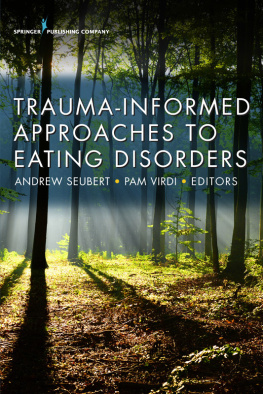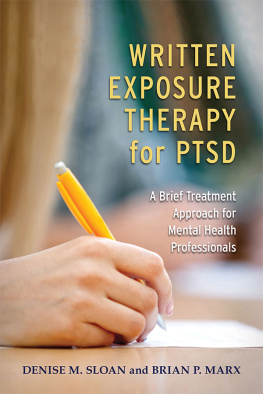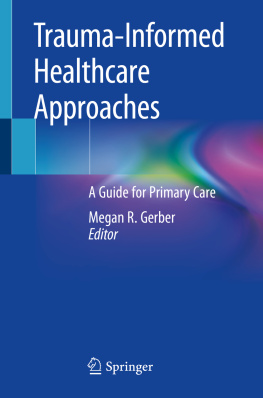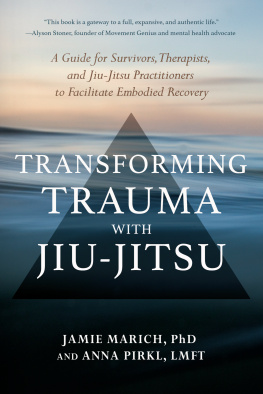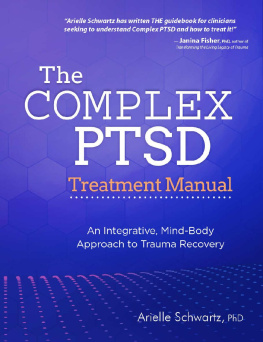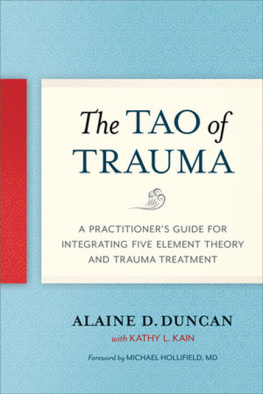
Robert Schmidt and Sharon Cohen have written what is destined to be a classic in the mental health field. Disaster Mental Health Community Planning contains comprehensive information on creating community-wide emergency plans for handling traumas, including a psychological component. The text stresses collaboration, communication, assessment, and lessons learned from various types of natural and human-made disasters. It is proactive, beautifully organized, reader friendly, and chock full of essential information for dealing with catastrophes and their aftermath. In an age of unpredictability, this book is a stable resource.
Samuel T. Gladding, PhD, LPC, CCMHC, professor of counseling, Wake Forest University; former American Counseling Association president and ACA Foundation Trustee
Disaster Mental Health Community Planning is a must read for community leaders and mental health professionals before disaster strikes. This book provides invaluable information for considering, creating, and establishing a sustainable resiliency plan in the face of natural and human tragedies. Unfortunately, the necessity for this kind of planning is all too real and necessary in the U.S. today. Having established evidence-based EFT trauma-healing programs in Sandy Hook, Connecticut, and Parkland, Florida, as well as for genocide, indigenous, and refugee communities in Rwanda and Australia, I understand the importance of having a plan in place to bring communities back to resiliency as quickly and effectively as possible; otherwise these kinds of traumas have the potential to debilitate communities for generations.
Lori Leyden, PhD, MBA, international trauma specialist
Disaster Mental Health Community Planning is a comprehensive handbook for communities to plan for and recover from communal trauma. Written as a guide from a first-hand perspective and directly influenced by Schmidts experiences as a Sandy Hook resident and counselor and Cohens background in communication and collaboration, it highlights the importance of addressing the psychological and emotional impact from communal trauma and explains evidence-based trauma therapies that most effectively promote recovery. The authors effectively explain, in laymans terms, the importance of translating chaos into collaboration as a means of promoting community healing following a communal mental health disaster.
Deb Del Vecchio-Scully, LPC, NCC, BCN, DCMHS, diplomat, clinical mental health specialist in trauma counseling, former clinical recovery leader, Newtown Recovery & Resiliency Team, co-founder and clinical director of Center for NeuroPotential and PTSD
Mental health in the U.S. is unfortunately often overlooked or ignored in all aspects of our society. Case in point, many people who are traumatized from a disaster do not receive the treatment needed for long-term care. I hope that communities will use the information in this book to develop a plan specifically aimed to help the needs of these distraught survivors.
John T. Broderick, Jr., former chief justice, New Hampshire Supreme Court
Collaboratives, such as those mentioned in this book and the one we established in California, provide an important way to provide immediate and long-term mental health needs to natural disaster survivors. We recommend such collaborations highly.
Debbie Mason, Past CEO, Healthcare Foundation of Northern Sonoma County
Congratulations to the authors for distilling the very complex topic of disaster mental health and providing all that is needed to develop a plan for effective preparedness and response after a serious incident.
Cindy Ehlers, MS, LPC and executive vice president, clinical operations, Trillium Health Resources
Disaster Mental Health Community Planning
Disaster Mental Health Community Planning is a step-by-step guide to developing mental health disaster plans, assisting communities to act on long-term resilience and recovery.
As disasters continue to increase in severity and number, with 16% of survivors identified as potential PTSD victims if they dont promptly receive care, this book is a critical read. Chapters outline how to prepare, develop, and implement a trauma-informed collaborative process that prioritizes lasting emotional wellbeing along with survivors short-term needs. The manual demonstrates how to form this partnership through effective communication, assess those individuals at greatest risk of distress, and deliver trauma-specific treatment. Readers will appreciate the books practical, user-friendly approach, including case studies, checklists, and follow-up questions to better define goals. Cutting-edge treatment interventions are included, along with basic information on traumas impact on the brain and the types and effects of human-caused and natural disasters to help readers make sound planning decisions.
Accessible to mental-health providers, community leaders, organizations, and individuals alike, Disaster Mental Health Community Planning is a Road Map for anyone interested in delivering a trauma-informed mental health supplement to their communitys medical disaster preparedness and response plan.
Robert W. Schmidt, LPC, is a licensed professional counselor who lives and practices in Sandy Hook, Connecticut. He was given the ACA Samuel T. Gladding Unsung Hero Award for his work in Sandy Hook.
Sharon L. Cohen, MA Com, is a corporate/nonprofit communication and collaboration specialist with a background in the mental health field.
Disaster Mental Health Community Planning
A Manual for Trauma-Informed Collaboration
Robert W. Schmidt and Sharon L. Cohen
First published 2020
by Routledge
52 Vanderbilt Avenue, New York, NY 10017
and by Routledge
2 Park Square, Milton Park, Abingdon, Oxon, OX14 4RN
Routledge is an imprint of the Taylor & Francis Group, an informa business
2020 Robert W. Schmidt and Sharon L. Cohen
The right of Robert W. Schmidt and Sharon L. Cohen to be identified as authors of this work has been asserted by them in accordance with sections 77 and 78 of the Copyright, Designs and Patents Act 1988.
All rights reserved. No part of this book may be reprinted or reproduced or utilised in any form or by any electronic, mechanical, or other means, now known or hereafter invented, including photocopying and recording, or in any information storage or retrieval system, without permission in writing from the publishers.
Trademark notice: Product or corporate names may be trademarks or registered trademarks, and are used only for identification and explanation without intent to infringe.
Library of Congress Cataloging-in-Publication Data
Names: Schmidt, Robert W. (Counselor), author.
Title: Disaster mental health community planning : a manual for trauma-informed collaboration / Robert W. Schmidt and Sharon L. Cohen.
Description: New York, NY : Routledge, 2020. | Includes bibliographical references and index.
Identifiers: LCCN 2019050367 (print) | LCCN 2019050368 (ebook) | ISBN 9780367247270 (hbk) | ISBN 9780367247263 (pbk) | ISBN 9780429285134 (ebk)
Subjects: LCSH: Disaster reliefHandbooks, manuals, etc. | Emergency managementHandbooks, manuals, etc. | Mental healthHandbooks, manuals, etc.


